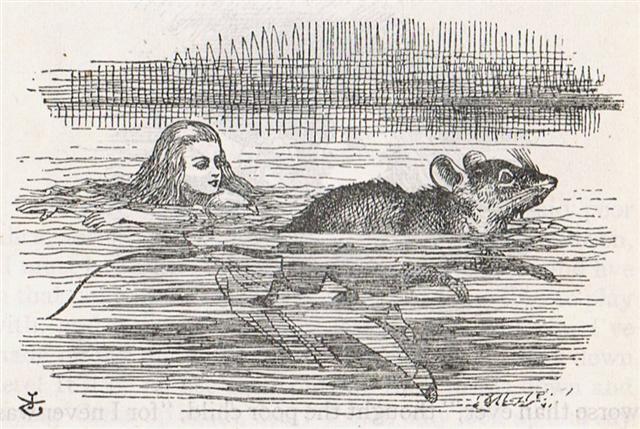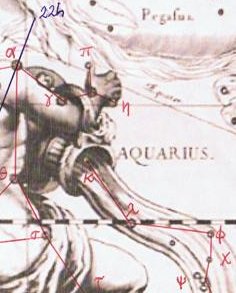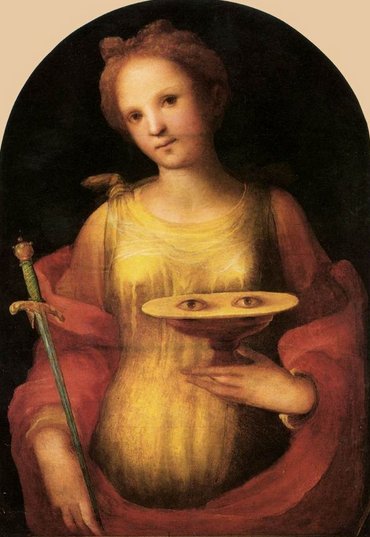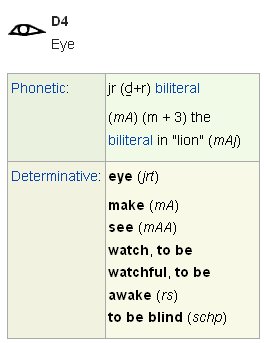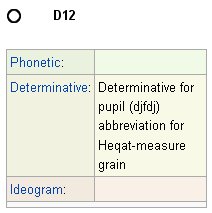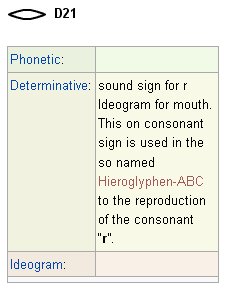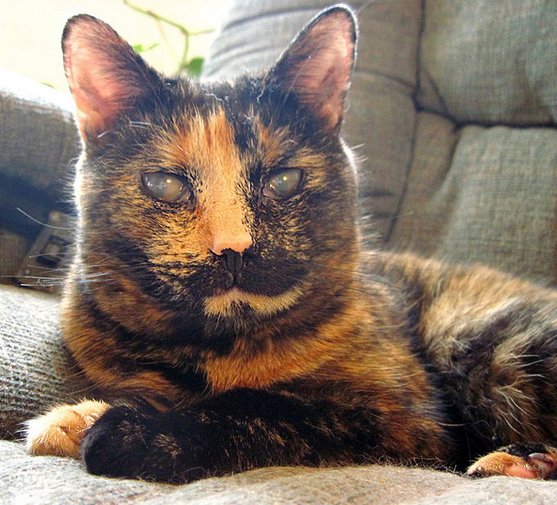The Chinese Girl station was presumably a name chosen in order to indicate that there just had been a fundamental change from a male ruler (head) into female: ... When this tremendous task had been accomplished Atea took a third husband, Fa'a-hotu, Make Fruitful. Then occurred a curious event. Whether Atea had wearied of bringing forth offspring we are not told, but certain it is that Atea and her husband Fa'a-hotu exchanged sexes. Then the [male] eyes of Atea glanced down at those of his wife Hotu and they begat Ru. It was this Ru who explored the whole earth and divided it into north, south, east, and west ...
At the time of rongorongo Al Bali (the Swallower) rose heliacally *314 (→ π) right ascension days after 0h:
The glyph at *314 on the G tablet
was possibly designed to indicate an ancient balanced state at the autumn equinox (at sundown, tukutuku) - where the Jaguar had lost his Fire because it had been Stolen (Gouyo!). And then he had juggled with his Eyes so they got caught in (swallowed by) a Branch high up in a Tree: ... The jaguar learned from the grasshopper that the toad and the rabbit had stolen its fire while it was out hunting, and that they had taken it across the river. While the jaguar was weeping at this, an anteater came along, and the jaguar suggested that they should have an excretory competition. The anteater, however, appropriated the excrement containing raw meat and made the jaguar believe that its own excretions consisted entirely of ants. In order to even things out, the jaguar invited the anteater to a juggling contest, using their eyes removed from the sockets: the anteater's eyes fell back into place, but the jaguar's remained hanging at the top of a tree, and so it became blind. At the request of the anteater, the macuco bird made the jaguar new eyes out of water, and these allowed it to see in the dark. Since that time the jaguar only goes out at night. Having lost fire, it eats meat raw. It never attacks the macuco ... ... All was now ready for departure except that there was no fire in the smithy. The ancestor slipped into the workshop of the great Nummo, who are Heaven's smiths, and stole a piece of the sun in the form of live embers and white-hot iron. He seized it by means of a 'robber's stick' the crook of which ended in a slit, open like a mouth. He dropped some of the embers, came back to pick them up, and fled towards the granary; but his agitation was such that he could no longer find the entrances. He made the round of it several times before he found the steps and climbed onto the flat roof, where he hid the stolen goods in one of the skins of the bellows, exclaiming: 'Gouyo!', which is to say. 'Stolen!'. The word is still part of the language, and means 'granary'. It is a reminder that without the fire of the smithy and the iron of hoes there would be no crops to store ...
The Egyptian hieroglyphs add evidence. The sign for the Eye is obvious:
And then, when the pupil was removed, it became like the tao: pupil¹ ... orphan who is minor and hence a ward ... one under instruction ... L. pūpillus, -illa orphan, ward ... of pūpus boy, pūpa girl ... pupil² ... circular opening in the iris of the eye ... L. pūpilla ... secondary dim. of pūpa, girl, doll, pupil of the eye ... The application of the L. words to the pupil of the eye is based on, or parallel to, that of Gr. kórē maiden, girl, doll, pupil (the allusion being to the tiny images of persons and things that may be seen therein) ...
Kore. To lack, to be missing; without (something normally expected), -less; ana kore te úa, ina he vai when rain lacks there is no water: vî'e kenu kore, woman without a husband, i.e. widowed or abandoned by her husband. Vanaga. Not, without (koe); e kore, no, not; kore no, nothing, zero; kore noa, never, none; hakakore, to annul, to nullify, to annihilate, to abrogate, to acquit, to atone, to expiate, to suppress, a grudge. T Pau.: kore, not, without. Mgv.: kore, nothing, not, without, deprived of; akakore, to destroy, to annihilate. Mq.: kore, koé, óé, nothing, not, finished, done, dead, destroyed, annihilated, without. Ta.: ore, no, not, without. Korega, nothing, naught. Churchill. [Cfr. Greek kórē maiden, girl, doll, pupil.]
|
|||||||||||||||||||||||||||||||||||||||||||||||||||||||||||||||||||||||||
.jpg)

